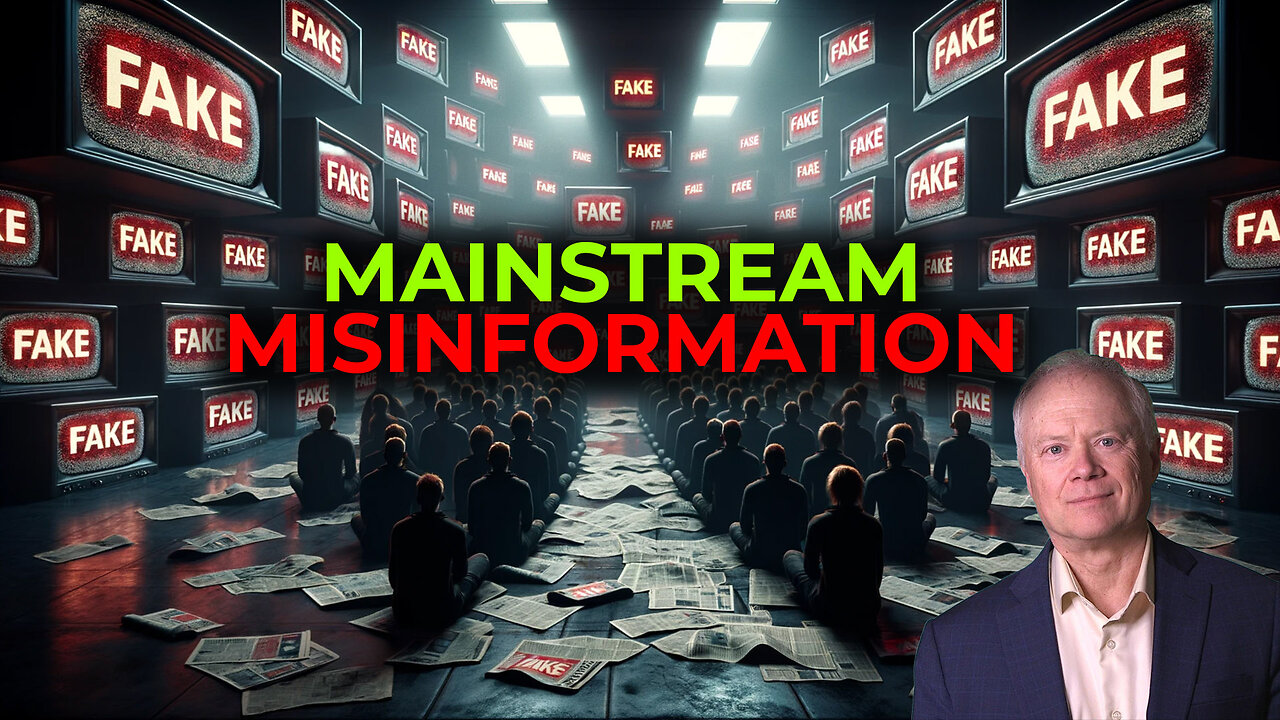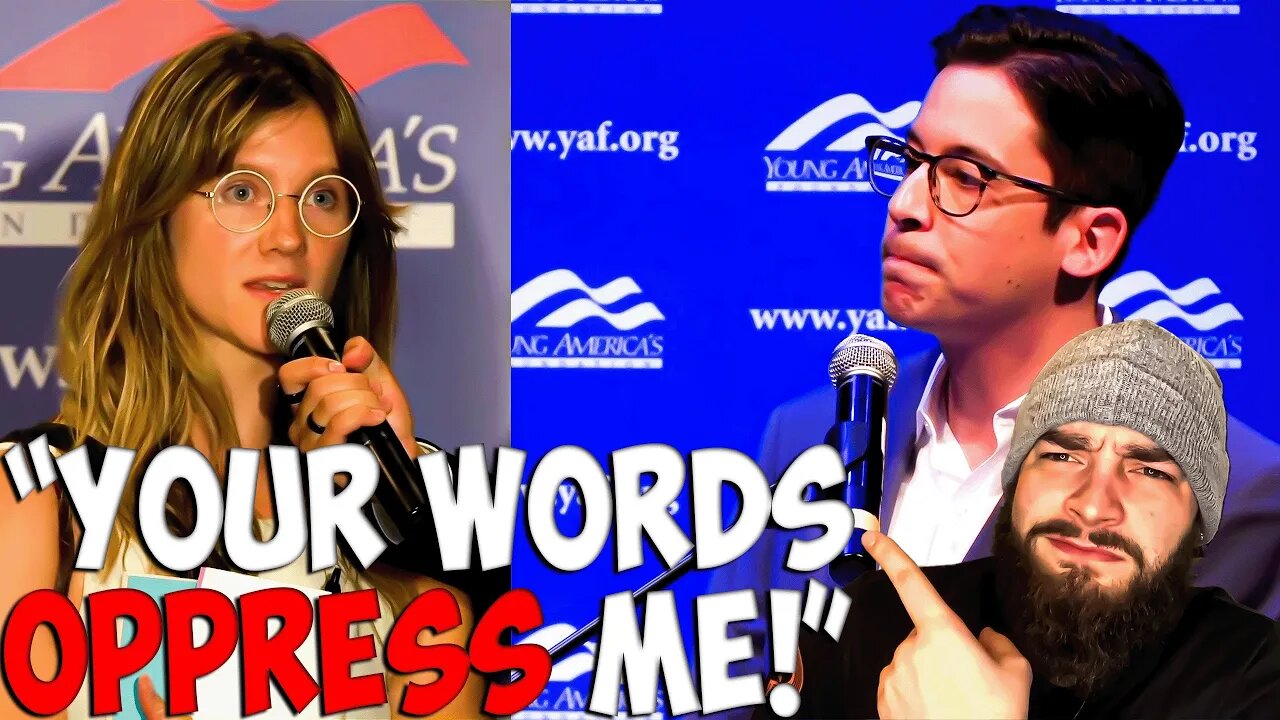CNN Host Stunned by Pollster Telling Her Bluntly Why Media Are Always Wrong on This
What a Princeton professor gets wrong about capitalism and poverty
Matthew Desmond's analysis never goes deeper than his facile assertion that "poverty persists because some wish and will it to." https://reason.com/video/2024/01/23/princetons-matthew-desmond-gets-everything-wrong-about-povertys-root-causes/ --- Matthew Desmond is a Princeton University professor and the recipient of a MacArthur Fellowship, a Pulitzer Prize, a PEN/John Kenneth Galbraith Award, and a National Book Critics Circle award. His recent book Poverty, by America—a New York Times bestseller that was ecstatically well-reviewed in many mainstream outlets—attempts to reframe the national policy debate around poverty. Like the muckrakers of the Progressive Era, Desmond is a master storyteller who gathers firsthand anecdotal material to illuminate social problems. But his novelist's eye for detail can cause readers to overlook the absence of big-picture analysis or useful solutions. What causes poverty in America, according to Desmond? He answers with bland, awkwardly worded slogans, such as: "Poverty persists because some wish and will it to." He says we need "policies that refuse to partner with poverty, policies that threaten its very survival." Desmond gets more specific about what doesn't cause poverty. He dismisses cultural explanations, such as single-parent households and declining marriage rates. He quickly dismisses the idea that the welfare state traps people in cycles of dependency, claiming that these arguments rely on anecdotal evidence, even though there's a vast systematic literature on the subject. Desmond doesn't take up political scientist Charles Murray's basic challenge to explain why it is that between 1949 and 1964 the American poverty rate dropped by 22 percentage points before the government did practically anything to help. After President Lyndon Johnson launched his war on poverty, the decline leveled considerably. Desmond approaches his firsthand investigations with the preconception that poverty is a byproduct of capitalist exploitation. Prices aren't set in a competitive marketplace, in his view; they're just a projection of greed. It's "tempting," he writes, "to blame rising housing costs on anything other than the fact that more than a few of us have a god-awful amount of money and are driving prices higher and higher through bidding wars." A chapter on the real estate market titled "How We Force the Poor to Pay More" argues that it's twice as profitable to be a landlord in the inner city. Desmond doesn't bother explaining why even more unscrupulous people don't tap into this lucrative business opportunity. His evidence for this claim is a 2019 paper he co-authored in the American Journal of Sociology that uses data so crude that it really tells us nothing. It omits important costs—like return on equity capital—and benefits—like real estate appreciation—that strongly bias the results in the direction Desmond wants. It ignores how landlords in poor areas are shamed, sued, occasionally jailed, forced to go to court to evict families, and must routinely travel to dangerous areas. Those headaches scare away most investors, which means that those who stick it out can charge more. The way to reduce costs in poor areas is to do the opposite of what Desmond advocates and make it easier for landlords to do business, such as streamlining the process of evicting tenants who don't pay rent. "Abolishing poverty," as he sees it, means looking inside ourselves and finding the will to act. His books have had such a wide reach, I fear that this simplistic nonsense will cause policy makers to forget the hard-won lessons of the '60s in favor of policies that leave the American poor worse off than they already are. Photos: Brandon Kruse/ZUMAPRESS/Newscom; Antonio Suarez/ZUMAPRESS/Newscom; David H. Wells/ZUMA Press/Newscom; Ron Adar/ZUMAPRESS/Newscom; Renee C. Byer/ZUMA Press/Newscom; Laura Embry/ZUMA Press/Newscom; Lannis Waters/ZUMA Press/Newscom; Jvillegas@Sacbee.Com/ZUMA Press/Newscom; Michael Goulding/ZUMA Press/Newscom; Charlie Neuman/ZUMA Press/Newscom; Joe Sohm / Visions of America/Newscom; Ken Cedeno/UPI/Newscom; Gary C. Caskey/UPI/Newscom; Alex Milan Tracy/Sipa USA/Newscom; Teun Voeten/Sipa USA/Newscom; VARLEY/SIPA/Newscom; Jonathan Alpeyrie/SIPA/Newscom; MARILYN HUMPHRIES/ 2023 Marilyn Humphries/Newscom; Maxppp/MAXPPP; Max Faulkner/MCT/Newscom; Judy Griesedieck/MCT/Newscom; Andrew Councill/MCT/Newscom; Katherine Jones/KRT/Newscom; imageBROKER/Jim West/Newscom; Peter Bennett/Ambient Images/Newscom; DPST/Newscom; Remsberg Inc/Newscom Music:"Human," by Rex Banner via Artlist; "Knowledge," by Colors & Carousels via Artlist; "Upward Motion," by Rex Banner via Artlist; "Hidden Side," by Russo via Artlist; "Boardwalk," by Generation Lost via Artlist. Produced by Aaron Brown. Edited by Adani Samat & Regan Taylor.

















































